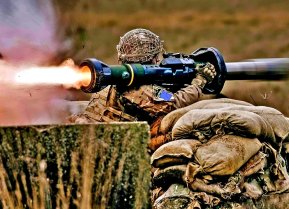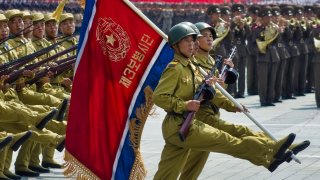The Uncertain Russia-North Korea Relationship
Moscow and Pyongyang’s new defense agreement conceals tensions within the bilateral relationship that matter over the long term.
The United States and South Korea have ample reasons to worry about the new agreement between Russia and North Korea. The agreement involves a mutual defense commitment between Russia and North Korea as well as military-technical cooperation. However, details matter, and the details of that agreement and ongoing Russian assistance are not known. And the agreement is almost certainly not a basis for a new Russia-China-North Korea alliance, given the very differing objectives of these three countries.
The Russian commitment to military-technical assistance is of particular concern. Russia could provide many kinds of assistance to North Korea that would potentially place the South and even the United States at great risk. Of particular concern would be Russian help with the North Korean nuclear weapon program, which could allow the North to build more powerful weapons of mass destruction. But Russia could also assist North Korea in developing ballistic missiles, satellites, satellite launchers, air defense systems, and other weapons.
What is not clear is how much of a difference this agreement will make. After all, over the years, the Soviet Union and then Russia have provided a lot of military-related help to North Korea. The Soviet Union trained North Korean nuclear scientists and supervised the construction of the first North Korean nuclear reactor. Russia has apparently assisted North Korea with its ballistic missile program, with GPS jammers, with maraging steel and aluminum needed for uranium centrifuges, with the KN-23 theater missile (which strongly resembles the Russian Iskander missile), with enhanced guidance and performance of the 240 mm multiple rocket launcher rockets, with developing a “hypersonic” missile, with successful launch of the North Korean spy satellite, and with North Korean use of a new satellite launcher using a more powerful fuel able to put much heavier and capable spy satellites into orbit.
We do not know the full details of Soviet and Russian involvement in these or other potential transfers to North Korea, but this is already a long list. Russia did not need the recent agreement to pursue any of these, so it is not clear how much the agreement will add to the transfer of military technologies from Russia to North Korea. However, given North Korean military assistance for the Russian invasion of Ukraine, Russia may be more inclined to accelerate its military transfers to North Korea.
The mutual defense commitment in the agreement is curious. Despite North Korean protestations, neither the United States nor South Korea have any interest in invading North Korea—the North does not need a Russian defense commitment, and likely Russia would not have many forces to send to North Korea because of its invasion of Ukraine. For Kim, this part of the agreement was thus mainly political, consistent with his recent claims that South Korea is the North’s enemy and a real threat.
However, the mutual defense commitment could be a “Putin trap,” with Russian president Vladimir Putin getting military assistance from North Korea that North Korean leader Kim Jong-un cannot expect in return. Putin has annexed four regions of Ukraine. If Ukrainian forces counterattack these regions, Putin could claim that Russia has been invaded and invoke this commitment, asking North Korea to send forces to assist in defending Russia. After all, Putin has had difficulty fulfilling his requirements for soldiers, and he may find North Korean soldiers a helpful alternative.
Ironically, this mutual defense commitment could also be a “Kim trap.” Kim knows that during the Vietnam War, some 320,000 South Korean troops supported U.S. military operations in Vietnam. This combat experience was empowering for the South Korean Army, and the United States also provided significant economic assistance to South Korea, which helped facilitate its early rise and eventually became a major economic power.
Kim may want both of these advantages and could gain them from Russia by sending North Korean troops to fight in Ukraine. To avoid defections, Kim would probably want to send only soldiers from elite families that primarily live in Pyongyang, keeping the families as hostages. Of course, these families would not want their children sent to Ukraine to suffer the horrors and effects of war. To avoid serious dissent, Kim may want to justify dispatching North Korean troops by claiming that he is only fulfilling his side of the recent agreement.
Finally, some in the community fear that this agreement is but an early step in forming a Moscow-Beijing-Pyongyang alliance. True, all three are fighting against the United States’ position as a global superpower and dominant economic power. They want to do what they can to undermine U.S. power, and in that, they share efforts. But both Russia and China seek to become the new global superpower, something they cannot both be. Thus, China was clearly unhappy to see Putin making an agreement with North Korea and strengthening Russia’s ties with Vietnam, upstaging China’s efforts to achieve dominance in Asia. And the Russian-North Korean agreement prohibits their making other agreements with third parties that infringe on their core interests. Meanwhile, despite North Korea being dependent on Chinese aid, it resists Chinese efforts to dominate the North, seeking the appearance of North Korean self-reliance.
The agreement has unsettled South Korea. South Korea threatened to start sending weapons to Ukraine if Russia did not renounce the agreement, a natural response to Russia significantly increasing the North Korean threat. Putin naively tried to reassure the South that it “shouldn’t worry” about the agreement if it does not plan aggression against the North. Putin apparently forgot that North Korea is the established aggressor on the Korean peninsula. South Korea thus needs to implement its threat to help Ukraine, which would present Putin with consequences for his actions.
It is also time for the United States and South Korea to establish a public information campaign that counters the aspirations and capabilities of Russia and North Korea. For some time, North Korea was able to send large numbers of munitions for use against Ukraine and reap substantial financial and other rewards. But is North Korea running out of outdated war reserve stocks it can continue sending to Russia? And how dangerous are those munitions? Will Russia reduce its support of North Korea when it is no longer getting significant North Korean assistance? And if North Korea does send military forces to fight in Ukraine, Kim will be increasing instability in North Korea that the United States and South Korea should be prepared to exploit.
About the Author: Dr. Bruce Bennett
Bruce W. Bennett is a senior international/defense researcher at RAND, a nonprofit, nonpartisan research institution. He works primarily on research topics such as strategy, force planning, and counterproliferation within the RAND International Security and Defense Policy Program.
Image: Shutterstock.


